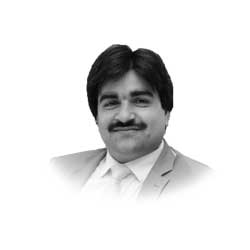By: Khalil Ahmed Dogar
Tobacco use is one of the major public health challenges in today’s world and single most important cause of preventable deaths worldwide. It is a key risk factor for non-communicable diseases. There are 1.3 billion tobacco users worldwide. That number would be even larger if tobacco didn’t kill half of its users. Every four seconds, tobacco takes another life. According to World Health Organization (WHO), there are over 23.9 million tobacco users in Pakistan, out of which approximately 166,000 are dying every year because of tobacco related diseases. As per Pakistan Institute of Development Economics (PIDE) study’s finding tobacco annihilates 1.6 percent of GDP every –taking out Rs 615 billion from the economy as health cost. What makes this statistic even worse is that Pakistan largely being a population of young people, puts a lot of youth and children at risk of tobacco use. According to a survey about 1200 children start smoking in Pakistan every day. The World Bank recommends at least 30 percent increase in taxes on tobacco products yearly to reduce the overall consumption of tobacco.
In Pakistan, celebrities like Fawad Khan, Waseem Akram who are role models for our young generation and are followed by millions are misguided by the tobacco industry for promoting tobacco narrative that discourages tobacco taxation.
Decades of the tobacco industry’s deception and devious tactics have hooked generations of users to nicotine and tobacco, driving this global epidemic. Tobacco industry always use different tactics to target the children and youth. Tobacco industry understood the value of engaging celebrities in their promotional tactics to encourage youngsters to initiate smoking. A Tobacco Industry backed campaign is doing rounds in the press and social media that overestimates the share of illicit trade in tobacco market, so that the two biggest players in the market can evade legitimate tobacco taxes. In Pakistan, celebrities like Fawad Khan, Waseem Akram who are role models for our young generation and are followed by millions are misguided by the tobacco industry for promoting tobacco narrative that discourages tobacco taxation.
In past, tobacco companies openly paid movie studios and stars to feature their products. Tobacco and related industries have increasing preyed on Children and adolescents, engaging in advertising tactics like sponsorship and influencer marketing to target them directly that threaten their health.
The cheap availability of cigarettes in the market lifts the affordability. In Pakistan, cigarettes are available at a much cheaper rate as compare to the South Asian region. Government must impose a tax on tobacco products to ascend the revenue, reduce the burden on health infrastructure and its affordability to the youth.
The current tax structure enables the tobacco industry to sell cheaper cigarettes. Considering the economic and health costs of tobacco consumption, an increase of four to five times the current tax rate is strongly recommended. However, as a start, it is imperative that the Federal Board of Revenue (FBR) raises excise taxes to meet the WHO’s recommended threshold of 70 percent of the retail price of a cigarette pack.
The FBR must narrow the tobacco industry’s tax maneuvering space by progressively moving to a single-tier taxation system. These reforms will effectively reduce tobacco affordability and save millions of youths from being trapped into an expensive life-long loyalty.
The low prices of tobacco products make them affordable for youth that cigarette prices in Pakistan are among the lowest in the world. The average excise tax share of 45.4 percent of the retail price is much lower than the WHO recommendation that excise tax should be at least 70 percent of the retail price. Currently, the effective excise tax rate on cigarettes is still the same as it was 5 years ago due to no change in the federal excise tax and increases in nominal income and inflation. Due to such easy affordability, around 1200 children between the ages of 6 and 15 start smoking in Pakistan every day.
It is about time the policy makers realize that the economic and health cost of tobacco consumption is higher than Pakistan’s total yearly public health spending. Adopting the tobacco tax reforms model will result in 219,000 fewer smokers; 3.8 percent reduction in smoking prevalence among adults; 6.4 percent reduction in smoking intensity among adults; and Rs. 19 billion in additional total tax revenue.
World no tobacco day is observed around the world every year on 31 May. It is intended to encourage a 24-hour period of abstinence from all forms of tobacco consumption around the globe. The day is further intended to draw attention to the widespread prevalence of tobacco use and to negative health effects.
The writer is Program Manager, Society for the Protection of the Rights of the Child (SPARC), Islamabad. He can be reached at [email protected]
